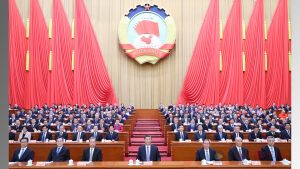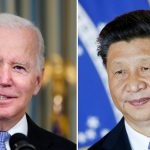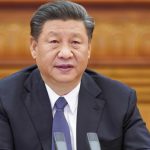
China’s Spy Suspects in Europe: Uncovering the Tip of the Iceberg
Recent arrests in Germany and charges filed in the UK against suspected Chinese spies have drawn attention to what intelligence experts warn is just the “tip of the iceberg” of a larger espionage problem facing Europe. The allegations underscore the delicate balancing act European leaders must navigate, particularly with Chinese President Xi Jinping’s upcoming visits to major European capitals.
The arrests and charges unveiled a network of alleged Chinese operatives reaching into key institutions across Europe. In the UK, one of the accused was a parliamentary researcher with access to influential politicians shaping Britain’s China policy. Meanwhile, in Germany, an aide to a member of the European Parliament from a far-right group was among those arrested.
These developments come in the wake of German Chancellor Olaf Scholz’s recent trip to Beijing, where economic deals were struck, signaling the complexity of European relations with China. Chinese embassies in Berlin and London have vehemently denied the espionage accusations, dismissing them as politically motivated attacks.
According to Kenneth Lasoen, a professor of intelligence and security, European governments face a dilemma in responding to Chinese espionage due to fears of economic repercussions from China’s significant economic power. Erich Schmidt-Eenboom, an intelligence expert, emphasized the severity of the situation, noting that recent arrests represent only a fraction of Chinese espionage activities, which also include sophisticated technical reconnaissance.
The Netherlands and Norway have also raised concerns about Chinese cyber threats and espionage operations targeting political and industrial sectors across Europe. Analysts suggest that China aims to influence Europe’s political processes, technology sectors, universities, and diaspora communities to advance its geopolitical agenda and weaken transatlantic alliances.
While the European Commission advocates for reducing reliance on China, individual EU members like France, Germany, and Hungary maintain varying degrees of engagement with Beijing, reflecting divisions within the bloc. China’s efforts to exploit these divisions underscore its strategic goal of solidifying its influence in Europe amid escalating tensions over Taiwan and territorial disputes in the South China Sea.
Matthew Brazil, co-author of “Chinese Communist Espionage: An Intelligence Primer,” highlights China’s keen interest in shaping policy debates in Europe, particularly regarding Taiwan and regional security issues. China’s pursuit of European technology also raises concerns about inadvertently contributing to Beijing’s military capabilities.
Recent arrests in Germany involving suspects attempting to sell military technology to China highlight the gravity of the threat posed by Chinese espionage. Stephan Blancke, an intelligence expert, suggests that China targets governments critical of its policies, as seen in Italy following its withdrawal from China’s Belt and Road Initiative.
Despite diplomatic tensions and allegations of espionage, observers anticipate minimal changes to Europe-China relations, given the mutual economic interdependence. Christian Schmidkonz, a professor of Asia-Pacific business studies, suggests that Beijing may not intervene aggressively on behalf of the arrested individuals, particularly if they are not Chinese nationals.
However, there are concerns about potential retaliatory measures from China, including arbitrary arrests of Europeans in response to espionage allegations. A German consultant warns of the risks associated with traveling to China amid heightened tensions, recalling previous incidents involving the detention of foreign nationals by Chinese authorities.
As European leaders grapple with the complexities of their relationship with China, the recent espionage cases serve as a stark reminder of the challenges posed by China’s growing influence and assertiveness on the global stage.















Comments